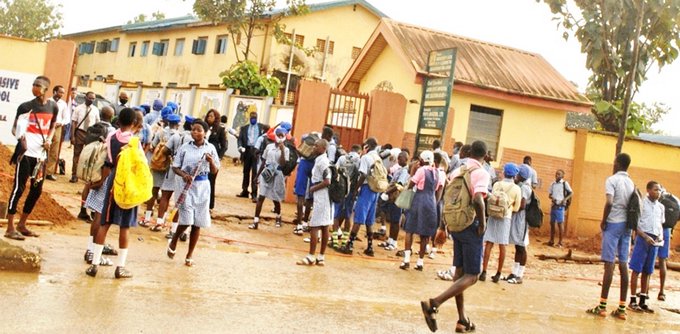Skyrocketing inflation, accelerated naira depreciation, among other economic gloomy realities have forced parents to adopt cost-saving measures, including downgrading their children and wards to cheaper schools as new academic session begins nationwide.
Nigeria’s economic challenges have recently translated into steady rise in the cost of tuition and educational supplies thereby compelling parents to consider alternative ways of meeting up with the challenge.
Other options being adopted by parents include payment in installments, requesting delayed payment agreements from the school administrators and not buying new uniforms, among others.
This is prevalent particularly among the low and middle income earners.
Checks by 21st CENTURY CHRONICLE among private schools in Abuja showed that some of them increased tuition fees by between 15 and 40 percent, and cost of books, uniforms and other supplies by up to 50 percent.
A parent, Chima Nwankwo, whose children attend a private school in Abuja, said he had to go into agreement with the school to allow him make part payment of the fees to enable the children resume when schools in Abuja reopened for a new academic session two weeks ago.
According to him, as is typical every new term, the school fees was increased but the increase wasn’t much, which he attributed to the school’s strategy to avoid mass defection.
“I actually considered changing them to a more affordable school but when the school agreed to part payment, I left them there,” Nwankwo added.
Another parent, Sekegh Shimakaa, who agreed that the economic crunch had impacted the choices parents make concerning the education of their children, described the situation as sad.
He said while he wanted his children to attend schools where they will be well taught and make good results, he could not afford to pay so much because “I am a Nigerian and I am feeling the pinch as well.”
Mrs Grace Joseph said she decided to keep her child in the same school but did not buy new sets of school uniforms and sports wears even though he had slightly outgrown the old ones.
“You know the way these children eat when they’re on holiday. My son had outgrown his school trousers and sports wears when school resumed and he was moving to a new class. Ordinarily, I ought to have gotten him new ones but considering that the school fees had been increased, I decided that he will continue using those ones and hopefully lose some weight and fit back into them.
“I had changed his school previously and he has caught up and is doing well in the new school so I didn’t want to move him again so that it doesn’t affect his academic performance. I, however, got him new school shoes and other supplies,” she added.
Malam Muhammad Noor, a parent in Kaduna said he wanted to change his child uniforms and sport wears but “I changed my mind when I saw the prices have almost doubled up.”
The boy going to JS3 “has outgrown his uniform, particularly the blazers and trousers. I asked the accountant for prices. But the prices have doubled up.”
“After enquiries, the management told me that the cost has to rise because the uniforms are produced by Tesco, a British leading schools gear manufacturer. They said they have tried not to increase the school fees for the first time,” he Mr Noor said.
Another parent, who is also a school teacher Cynthia Osas (not real name), said while it is true that the economic situation was having a negative impact on parents, schools were also operating in the same economic environment and, therefore, not absolved of the hardship.
“You have to understand with school owners and administrators. The price of everything has gone up; books, uniforms, instructional aids etc. they have to increase the fees to enable them survive the situation as well,” she added.









